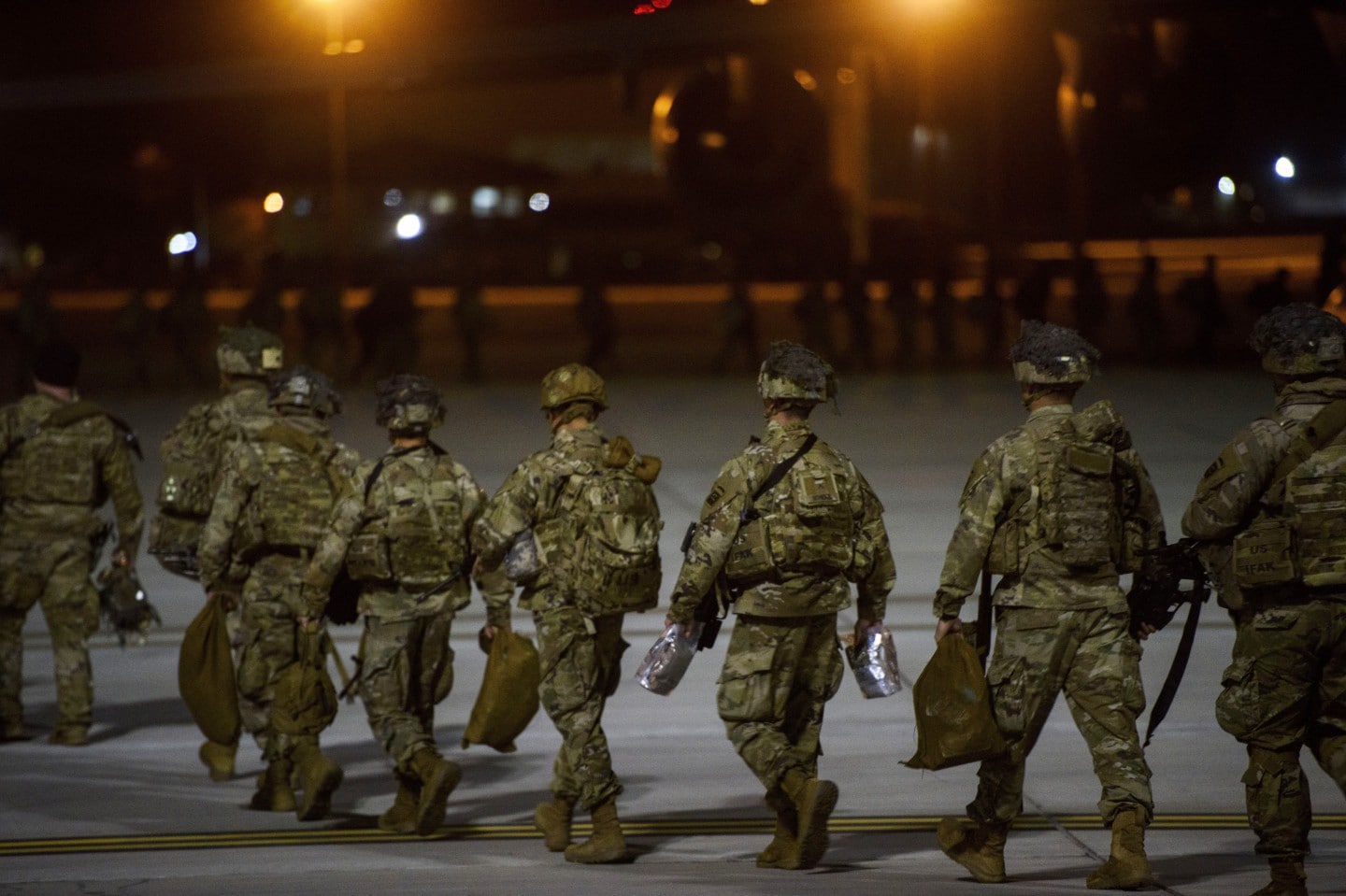Iraqi Prime Minister Adel Abdul Mahdi has asked U.S. Secretary of State Mike Pompeo to set up a mechanism for U.S. troops to withdraw from the country, according to an Iraqi statement released Friday.
On Sunday, the Iraqi parliament issued a nonbinding call for the estimated 5,000 U.S. troops to leave Iraq.
Despite the developments, the Trump administration appeared determined to keep U.S. troops in Iraq, even after its killing of a top Iranian commander in Baghdad last week triggered retaliatory Iranian strikes on bases housing U.S. military personnel in Iraq early Wednesday.
After the strikes, Iran’s supreme leader, Ayatollah Ali Khamenei, warned Wednesday that “these military actions are not sufficient [for revenge]. What is important is that the corrupt presence of America in this region comes to an end.”
But what would happen if U.S. troops indeed left the country voluntarily or were asked to leave by the Iraqi government, fully and with immediate effect? We asked five analysts who focus on the region to weigh in.
A counterweight would be lost
Ali Fathollah-Nejad, a visiting fellow at the Brookings Doha Center
“The departure of U.S. forces from the Middle East has been a long-standing and core Iranian foreign policy demand, shared by Tehran’s moderates as well as hard-liners,” he wrote.
Thousands attend funeral for Qasem Soleimani in Iraq.
The streets near Baghdad’s Green Zone on Jan. 4 were choked with people paying respects to Iranian general Qasem Soleimani and others slain in an airstrike. (Reuters)
According to Fathollah-Nejad, “both the U.S. and Iranian military presence, be it direct or through proxies, is a thorn in the flesh of most Iraqis who have suffered enormously from both countries’ self-centered and myopic policies since the 2003 invasion.”
But a U.S. troop withdrawal “would expose a weak Iraq to its powerful Iranian neighbor’s increasing weight as the Iraqi scene would be handed over to Iran on a silver platter after the American counterweight vanishes. Also, such an outcome would barely be welcomed by the popular uprising in Iraq that has been equally critical of Iranian and American interference,” he wrote.
It would threaten the Kurds
Galip Dalay, a fellow at the German Institute for International and Security Affairs who specializes in Kurdish politics
Iraq’s Kurdistan region is “still by far the most secure part of the country,” he said. For that reason, NATO members such as Germany have withdrawn their troops only from the non-Kurdish areas of Iraq, but have kept some forces in Irbil, the regional capital of Kurdistan.

“Once the U.S. umbrella is completely gone, the Kurds will be much more vulnerable to the central government and much more vulnerable to the Shiite militias’ wishes. The sense of security and the sense of autonomy that [the Kurds] enjoy might be put into jeopardy,” he said, referring to calls from some Shiites to “take most of their privileges” away.
Like Iraq’s Sunnis, “the Kurds would be more at the mercy of the militias, Iran and the central government,” Dalay said.
Counterterrorism efforts could be doomed
Peter Neumann, founding director of the London-based International Center for the Study of Radicalization and author of “Bluster: Donald Trump’s War on Terror.”
“Among the biggest legacies of the Americans in Iraq has been the training and funding of Iraq’s counterterrorism service. It is the country’s only counterterrorism force that is multiethnic and largely uncorrupt. In comparison, many of the other militias who have fought the Islamic State are controlled by Iran,” he said.

“If the United States were to withdraw its troops from Iraq, the governmental counterterrorism force would likely be merged with Iranian-backed militias. It would both undermine their reputation and constitute a blow to the Iraqi state, which the U.S. has sought to strengthen.”
It may end in humanitarian disaster
Ilan Goldenberg, director of the Middle East Security Program at the Center for a New American Security and a former Defense Department Middle East adviser under the Obama administration
Like Neumann, Goldenberg fears that a U.S. withdrawal from I
raq could result in a resurgence of the Islamic State there. If the Islamic State were to return to some parts of the country, he cautioned, “then the humanitarian effect will be devastating, putting these people back under ISIS rule, causing major displacement of people again,” he said.
According to the United Nations, about 1.8 million internally displaced people are in Iraq. More than 6 million people are in need of humanitarian assistance.
A U.S. departure from Iraq “makes it harder to do all the humanitarian and diplomatic work that needs to be done to … really help sustain in the long-term an effective counter-ISIS campaign,” he said.
Russia won’t (and can’t) step into the vacuum
Becca Wasser, a senior policy analyst at the Rand Corporation think tank, researching Russia’s role in the Middle East
“If U.S. troops were to withdraw,” she wrote in an email, “Russia will welcome this move and will make noise to fill this vacuum.”
“But it won’t step up to the plate as Iraq’s new security guarantor or seek to build a military presence in Iraq,” she wrote.
“Ultimately, Russia does not want to take on an outsized role in Iraq. It wants to remain on the fringes of politics and not get embroiled in disputes among Iraqi stakeholders. It wants to sell weapons to Baghdad to gain money and make them reliant on Russian equipment, but it doesn’t want to become responsible for Iraq’s security as a security guarantor. It wants to be a presence in Iraq to annoy the United States and take advantage of opportunities created by Washington’s missteps, but it doesn’t want to be responsible for Iraq in the same manner that the United States has since 2003.”

